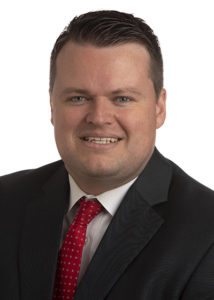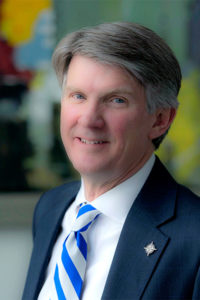COVID-19 poses a public health vs. public health question
By Dr. Michael Williams and David Mansdoerfer
Today, you will find public perception on how each state has responded to the COVID-19 crisis falls into two camps. There are those who want to reopen the economy, although the pace of reopening varies significantly. And there are those who think the pandemic still requires significant closures for the “public good.” These differences often fall along ideological political lines and are increasingly couched as a choice between the economy and public health.
But as HHS Secretary Alex Azar recently put it, there are “very real health consequences of this shutdown.” These consequences include delayed surgical procedures, an increase in mental health and anxiety issues, and individuals delaying or cancelling general primary care visits. Beyond the immediate and real health consequences, however, COVID-19 has had a significant impact on the public health of the nation, and more specifically, on the social determinants of health. As we think about the different approaches to this pandemic, and those in the future, it will be crucial not to sacrifice the long-term health of the nation by focusing solely on one public health issue at the detriment of the entire picture.
The HHS Office of Disease Prevention and Health Promotion oversees Healthy People 2020 & 2030, which places the social determinants of health into five categories: economic stability, education, health and healthcare, neighborhood and built environment, social and community context.  Each of these areas has been significantly impacted during the COVID-19 pandemic, leading to negative public health outcomes.
Each of these areas has been significantly impacted during the COVID-19 pandemic, leading to negative public health outcomes.
Clearly, there has been a significant erosion in economic security over the past few months.
The unemployment rate has gone from near full employment to depression level in two months, leaving many folks to wonder how they will feed their families and how they will pay their mortgage or rent. This is leading to rising poverty rates, which are a significant indicator in determining overall community health.
Education, from K12 to higher education, will see significant adverse impacts, including reduced funding and accessibility. There is already a higher education affordability crisis in this county. Couple that with increasing poverty and unemployment rates, and the ability to train the workforce of the future will be significantly diminished.
Accessibility to healthcare will also be strained. Since health insurance is primarily tied to one’s employment, rising unemployment rates also will increase the rates of the uninsured. Additionally, as the COVID-19 pandemic has disproportionally affected minority populations because of current structural health inequalities, we will likely see an increase in public health disparities.
One of the key issues involving neighborhood and built environment is access to healthy food. This has also suffered greatly due to COVID-19 as there has been a significant increase in the need for food programs. In addition, the U.S. food supply chain has been placed under immense pressure.
As for social and community context, the further we get into this pandemic, the less social cohesion we will have about which side of the question you are on — to open or not to open. This will further drive folks to their ideological corners and lead to a more divided America.
No matter what side of the question you fall on, it is clear that this isn’t a health versus the economy question, but rather a health versus health question. COVID-19 will continue to dramatically impact the wellbeing of us all. But the creation of a scenario where the very significant public health issues of closing the economy are not considered, and where we focus instead only on immediate public health issues, is short-sighted and will likely cause more long-term public health harm than COVID-19 ever could.
This isn’t to say that a full-blown reopening should be immediately considered. Data should drive our decision-making. However, if we don’t add the long-term impacts to the social determinants of health into our decision making, we will exacerbate an already difficult situation. As economist Thomas Sowell once stated, “There are no solutions. There are only tradeoffs.” There is no one “solution” in how we should respond to COVID-19 and other potential pandemics, but with richer and more robust public health and economic data, placed in the overall public health context of the nation, we should be able to lessen both the immediate and long-term adverse impacts.
Dr. Michael Williams is President of the University of North Texas Health Science Center at Fort Worth. David Mansdoerfer is Special Assistant to the President of the University of North Texas Health Science Center and former Deputy Assistant Secretary for Health for the Trump Administration.





Social media